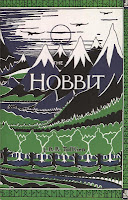I opened The Twelve to find myself back at year zero, immediately after the release of the virus. Sigh. Cronin intricately led us through the release of the virus in the first book, so I wasn't at all interested in taking two steps back.
Nevertheless, I dug in and was once again impressed with Cronin's character building: 'last stand in Denver' was brilliant, and PTSD-denial-Lily was quite well-drawn in the early novel. Although that's not to say I liked reading her passages, they were really annoying, and made me want to slap her, but that was the point. Here she is, in full-delusion mode, musing about where she could go for dinner, despite there being virals ready to eat her outside her front door:
They had a marvelous patio draped with vines of fragrant flowers, and the most wonderful chef - he had visited their table once - who had trained at Cordon Bleu. Pierre? Francois? The man could do the most amazing thing with sauces, teasing the deepest flavor from even the simples dishes...And I thought the reasoning for her self-inflicted delusion was actually quite well constructed. Later in the book I thought she was also good in her mad queen of hearts role.
Danny the autistic busdriver I could have done without. Not only did it start to feel like the mentally ill survivors club, but Danny seemed to be copied from Tom Cullen in The Stand. In fact, I commented on the Passage being less mystical than The Stand as a good thing, but Cronin obviously read my review and took it as criticism because The Twelve is every bit as mystical as The Stand.
The worst part of this was that the storyline with Danny, 'last stand in Denver' and the pink-punk chick was unceremoniously dropped, presumably to reappear in the third book. It felt like pushing through a lot of packing material to find out someone sent you an empty box.
At least Danny was a real character. I have no idea what is up with Lore, whose character seems to be solely defined by who she is having sex with. I was assuming she was a spy for the homeland red-eyes, but it seems not, so I suspect she has some sinister Zero-related role to play in the final book.
One of my favourite parts of the book was the massacre in the field. The tension was unbelievable, it was obvious something was going to happen, but the actual events were quite unexpected and it felt like a return to form. Hardboxes, scary virals, eking out a living in the shadow of danger.
Unfortunately as the plot continues it makes less and less sense. Here come the spoilers.
After Amy visits Carter's lair, which was awesome, we descend into what feels like a screenplay sketch: there's little character development, the plot follows along in a predictable direction, and the sinister feel of the whole world just evaporates. Why did the 12 leave their armies of virals behind to join the humans for a drac convention? Sure they need a stable human population, but they have all the power, they can dictate the terms. It felt like Cronin just needed to get done with The Twelve to focus on Zero in the final book.
Don't expect to fully understand what is going on without re-reading The Passage. Despite re-reading my review, the wikipedia summary, and the clumsy biblical recap at the beginning, it wasn't enough for when Cronin finally got back to the original story 200 pages in. He expects you to recall a lot of the details and relationships from the previous novel.
I'll still read the next book, let's hope he can bring it home.
3 stars.


